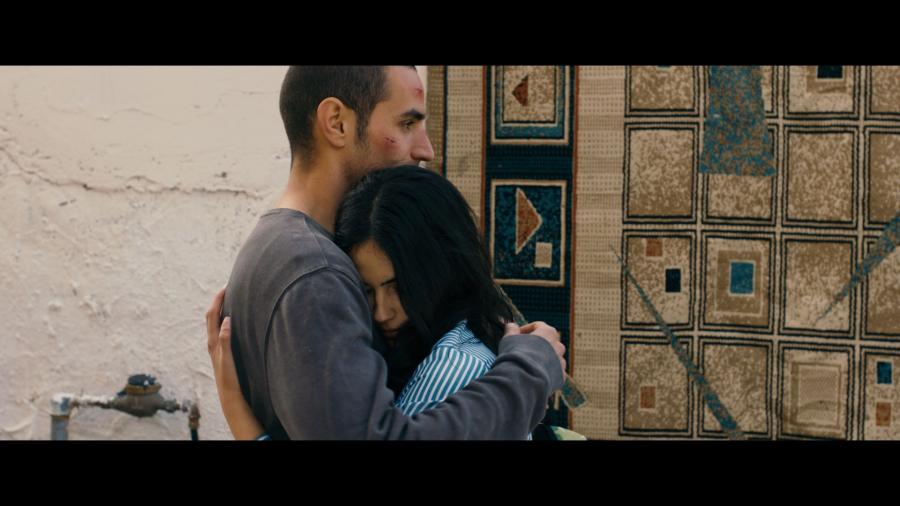It is so rare and exciting to find a Middle Eastern film in our theaters. Last year, we had the endearing Wadjda from Saudi Arabia, which was directed by a woman — a first for that country. Every year, barriers like that are crossed. This time, the movie is Omar and the country is Palestine.
So says the Academy that nominated it for an Oscar in the Best Foreign Language Film category. In 2005, Paradise Now, also directed by the Palestinian-Israeli Hany Abu-Assad, had been granted the same honour, but was ultimately credited as coming from the Palestinian Territories. There is nothing innocent in that change of appellation.
Omar is only the second film to represent the country, which many states have yet to recognize. The film was made by a man who holds Israeli citizenship, with some Israeli actors, shot mostly in an Israeli city, but supported with Palestinian funds. The debate over what is Palestinian and what is not has been raging for an awfully long time and has spilled over into the world of filmmaking.
This is one of the themes in Omar which stars Adam Bakri, who is very confident in his first screen role. He plays a young Palestinian baker, easy to identify with by the way he jokes and takes silly risks for love, like routinely visiting his girlfriend Nadia (Leem Lubany) by climbing the separation wall.
One evening, he makes the impulsive decision to join his childhood friends in murdering an Israeli soldier. Does that make him a freedom fighter or a terrorist? The movie takes a clear stand, but is sincere enough to allow for other interpretations. In the end, it’s all a matter of personal conviction, although Omar works as an involving and tense drama regardless of where you fall on the political spectrum.
The young man is quickly found out. We are not told how. His little world is nothing but a dollhouse to the ubiquitous Israeli secret police, who seem to read into minds and souls. Omar is then brought in for questioning. Torture methods are immediately used, but prove unsuccessful. The next day, a man sits at Omar’s table in the prison lunchroom and warns him of the dangers that may await him. The police, he says, have informants in the prison, whose task is to befriend the accused and bring them to confess.
Omar is resolute: “I will never confess.”
It is both shocking and darkly humorous to see his new acquaintance later turn up in the interrogation room, plain-clothed. Agent Rami (Waleed Zuaiter) takes out a recording device and plays back that very sentence. Omar is told it will be used as proof of his guilt, unless he accepts to collaborate, which would mean betraying his friends.
The two men meet repeatedly, as Omar struggles with his new reality. One time, we find them in a casual setting, in Rami’s office. He has just finished chatting with his mother on the phone. Omar stands in prison clothes, miserable but optimistic.
The men exchange a few nice words. It becomes obvious that, under different circumstances, they might have been good friends. They seem to grow conscious of it too, but are stuck within their own incompatible trajectories. Rami is trying to be good at his job. Omar wants to protect his companions and fight for his people. In a way, they are similar: they both wish to conform to their respective societies. Reconciliation begins with understanding their life positions could have been swapped.
Omar is simple, effective and while it lacks a distinctive visual style, it makes up for it with exotic, biblical locations. Above all, what the movie does well is show how a man can be destroyed inside out by an institution — any institution, really — as Omar is methodically turned into a surrogate tool. Whether he’s working with the police or the freedom fighters, he’s trapped. Officials keep threatening him with a life sentence, but it doesn’t take long for him to realize — the world he inhabits is a prison already.
Omar plays at Cinema Excentris with subtitles in English and French.
